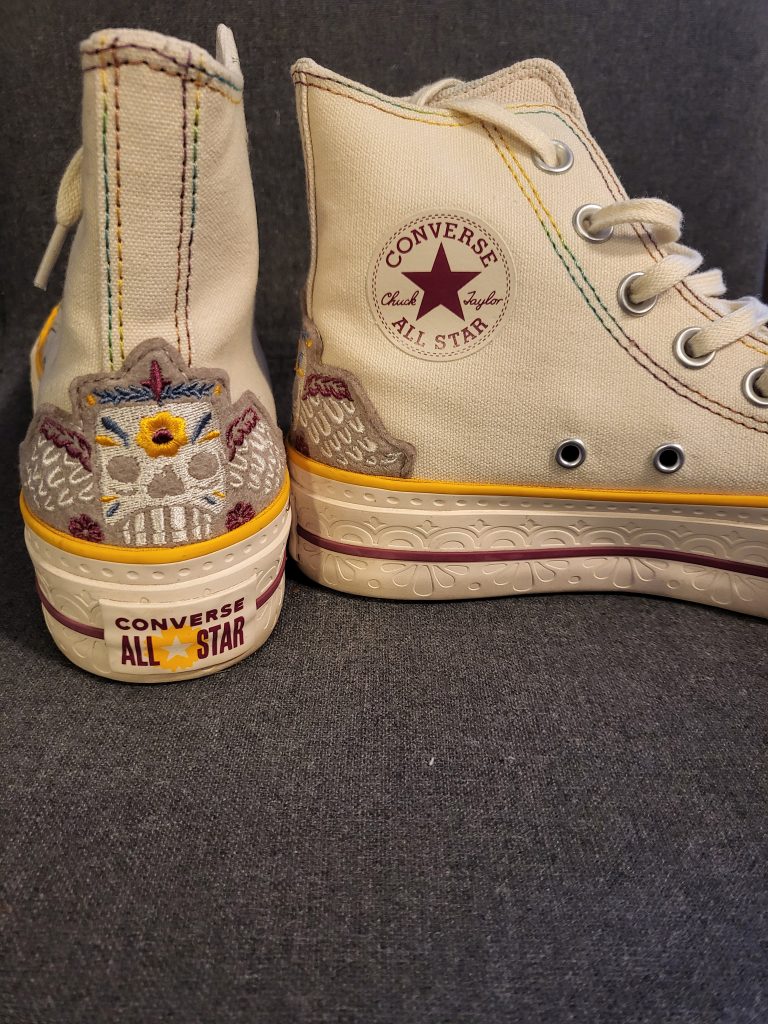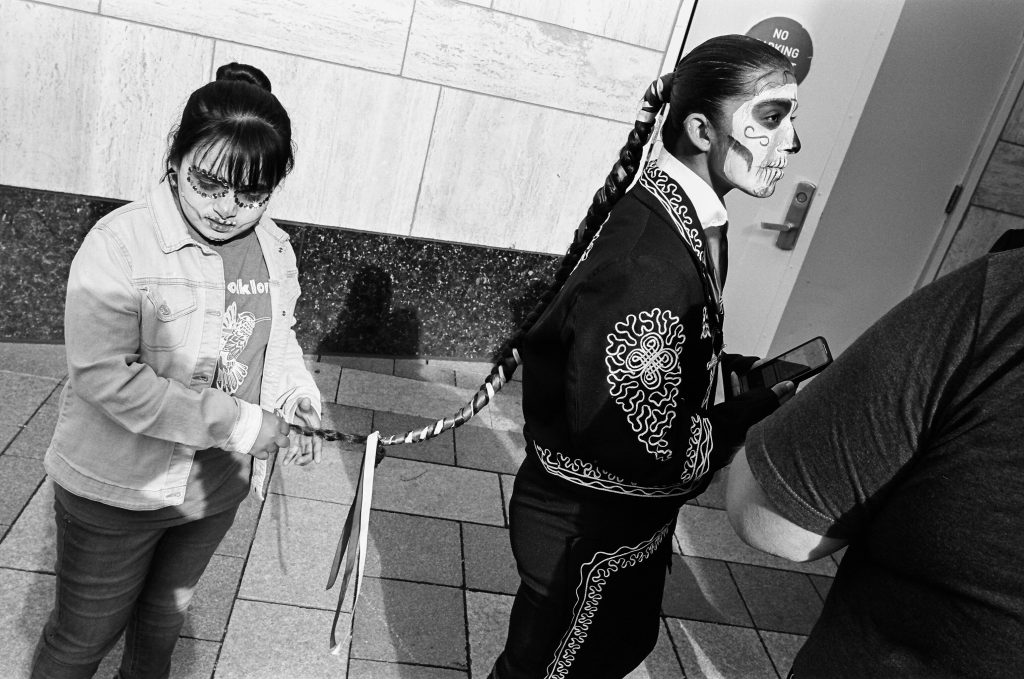Día de los Muertos: A Cultural Celebration or Commercialized Spectacle?
For many, Dia de los Muertos represents more than bright colors and skeletons, and the growing commercialization is a double-edged sword.
With the spooky season upon us, the question on my mind has been, is Dia de los Muertos being highjacked for a money grab by corporations big and small? As someone who is part of the Latinx community, I have to say there are moments where I see this holiday being commercialized and I fear this says much about the consumer culture in America.
In recent years, Americans have embraced the Latinx holiday known as Dia de los Muertos. A holiday where many Latinx countries like Mexico, El Salvador, Nicaragua and Guatemala celebrate from Nov. 1 to Nov. 2, remembering and honoring their loved ones who have passed away.
Major retail corporations and businesses have also welcomed the holiday such as See’s Candies, selling candy themed with bright colors and calaveras (skull candy). Then there’s stores like Vans, selling shoes, hoodies, socks and hats also themed in bright colors and calaveras.

This shows how a culturally inherited holiday in the United States has been commercialized, and I’m not the only one who has noticed the ploy for economic revenue.
“I’m of two minds,” said Dr. Sarah Chavez, a Latina professor of Culture, Arts and Communication, and Latinx Studies at UWT. “On the one hand I’m grossed out and it’s offensive. But there are third, fourth generation Latinx folks whose families were forced into assimilation and are discovering these things for the first time through these commercialized sources.”
Today, during the Halloween season you can walk into almost any store that is not Latinx owned or affiliated and see displays of calaveras and products that are bright and colorful. You will see La Muerte statues and small ofrendas to ancestors’ next to Halloween decorations. People even sell custom decorated merchandise on Etsy for the holiday.
I can’t knock the hustle, because after all we live in the US. It’s a capitalistic driven society and I can’t be mad at that. But at the same time, I struggle with this idea because although I didn’t grow up celebrating Dia de los Muertos, it’s still part of my culture and family history.
I’m first gen, born in the United States and I can attest to not being able to participate or even have knowledge of things in my Latino heritage other than the food my mom made, the music my parents listened to and family stories.
Growing up like this can be difficult because in America you are told to pick what part of your identity you want to reveal to the public. Culture forces you to play the game of picking just one identity and sometimes the game isn’t fair or fun because you end up being someone you are not. You are pressured to accept a version of your culture that society wants you to acquire, which is often a diluted version of your culture.
If we look at Cinco de Mayo, that holiday is more about drinking tequila or buying Mexican or Spanish beer, eating tacos and watching a boxing match than it is about Mexican culture as a whole. The Holiday is only celebrated in Puebla, Mexico, a town where the Mexican military defeated the French in a major battle on May 5, 1862. This shows me that if commercialization continues gaining traction, Dia de los Muertos will become a shell of itself and could turn into another day to just party or worse, disappear into Halloween altogether.
“Do you wanna celebrate Halloween or do you wanna celebrate Dia de los Muertos?” said Dr Chavez. “Because those are two separate things.”
Dia de los Muertos is an intimate holiday for the Latinx community. We are not the only community that celebrates their history and the way the holiday is celebrated is very important. My mom told me stories growing up about how people in El Salvador would go light up the cemeteries and have a picnic there with everyone else, tell stories, play music, cry and laugh together.
I have had to assimilate and ignore parts of my heritage throughout my life, as I grew up in the Christian faith where the practice of Dia de los Muertos was deemed demonic. I still hold on to my faith today, but there is also this part of me that wants to discover more about my Latinx history and heritage, even if I won’t be celebrating some of the things I discover.
The reason I get upset with the appropriation of my culture is because the culture ends up getting watered down to just one thing. This holiday is not all Latinx culture is about. If we know our history, civilizations in North and South America were interrupted in their development and the cultures that were here didn’t evolve in a natural progression.
There was much history and culture that was lost from those civilizations, and when we look at US history, the Latinx community has contributed to Civil Rights movements, the military during WWII, held public office and make up much of the US population. For me, the cultural significance is bigger than just Dia de los Muertos.
“I’m going to side eye that display at Target,” said Dr. Chavez. “I’m going to not participate in getting any of my own materials from those assimilated, appropriated spaces. I’m going to do what I can to make sure this is treated with a little more due reverence—and Latinos are not just happy skeletons.”
Every culture is more complex than just the one feature of it that America chooses to highlight. Latinx America is more than just tacos, the movie Coco and farm workers or the guys waiting at Home Depot for an odd job. I have to say that most people will choose to participate in holidays like Dia de los Muertos to support the culture, but we also can’t ignore the ugly side of corporate-led appropriation. It renders down sacred cultural practices to its basic elements and then exploits them.
If you want to learn more about Dia de los Muertos, you can go to Tacoma Art Museum’s Dia le los Muertos Festival starting Oct. 31 through Nov. 3. However, on Nov. 1 between 12 p.m. and 3 p.m., MECHA and Latinx Student Union are also hosting an event on campus. If you want to learn more about Latinx history and culture, you can sign up for classes taught by Dr. Chavez under the Latino Studies Minor at UWT.



